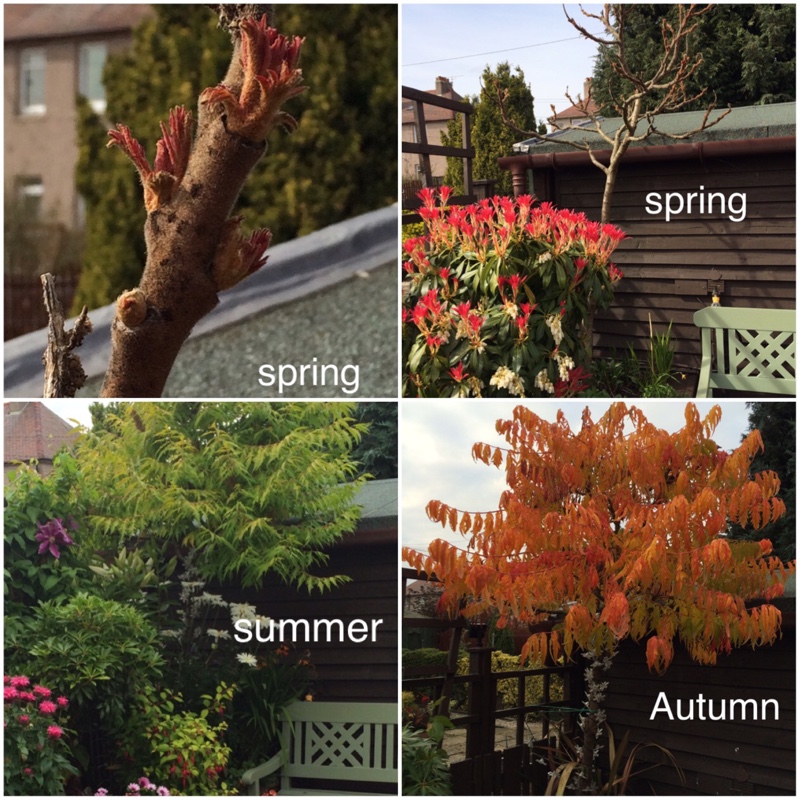
Rhus typhina 'Bailtiger' syn. Rhus typhina 'Tiger Eyes'
Stag's Horn Sumach 'Tiger Eyes'
'Tiger Eyes' is a dwarf stag's horn producing shocking red foliage in autumn. This shrub is highly toxic. The Sumach spreads via suckering shoots so remove any that appear from the base of the plant. It is particularly noted for the reddish-brown hairs that cover the young branches in somewhat the same way that velvet covers the horns of a stag, hence the common name.
Contributed by @lovemygarden65
-
Full sun to partial shade
-
Occasional watering
-
Full Frost Hardy: 5F (-15°C)
-
Moist and free draining
Common name
Stag's Horn Sumach 'Tiger Eyes'
Latin name
Rhus typhina 'Bailtiger' syn. Rhus typhina 'Tiger Eyes'
type
Trees or Shrubs
family
Anacardiaceae
ph
5.6 - 8.4 Acid - Neutral
Plant & bloom calendar
-
Best time to plant
full grown dimensions
 3.00 M
2.00 M
3.00 M
2.00 M
Rhus typhina 'Bailtiger' syn. Rhus typhina 'Tiger Eyes'
'Tiger Eyes' is a dwarf stag's horn producing shocking red foliage in autumn. This shrub is highly toxic. The Sumach spreads via suckering shoots so remove any that appear from the base of the plant. It is particularly noted for the reddish-brown hairs that cover the young branches in somewhat the same way that velvet covers the horns of a stag, hence the common name.
Planting young plants
From Early Spring TO Early Spring
Rhus is happy in sun or part shade and moist but well drained soil. Give this plant lots of room as it likes to spread its wings. It also puts out suckers and can soon take over a corner of the garden. To restrict growth and spread, plant in a large container which can then be sunk into the garden bed. Water frequently in dry weather, especially during its first year.




















